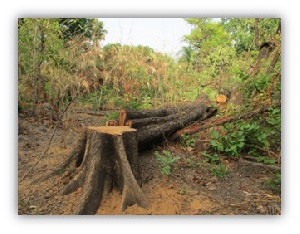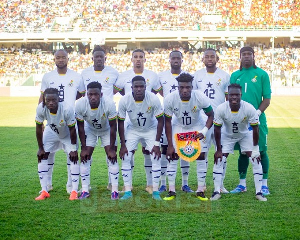Dr Alfred Sugri Tia, the Deputy Minister of Environment, Science, Technology and Innovation, has said the cost of environmental degradation was estimated at 9.2 per cent of the country’s Gross Domestic Product.
He said forest depletion, agricultural soils degradation and environmental health damage contributed to the figure and called on all to help respond to the impact of climate change to ensure the socio-economic development of the citizens whose livelihoods depend on these resources.
Dr Tia was speaking at the 5th Annual Civil Society Review of the Natural Resources and Environmental Governance (NECG) Sector Review Forum in Accra.
The forum is to provide a platform for information sharing and learning from stakeholders in the NECG sector and review its progress programme in terms of achievements, gaps, challenges and recommendations.
He said the government, in collaboration with development partners through a Sector Budget Support, has completed the implementation of the first phase of the five year Natural Resources and Environmental Governance programme.
Dr Tia said the Ministry would continue to create the enabling policy environment including roll-out of implementation strategy of the national climate change policy.
He said sustainable development required concrete and urgent action and this could be achieved with all hands-on-deck and that illegal mining coupled with increased rate of illegal logging has contributed to the deterioration of the environmental conditions and the status of the forest areas.
Dr Tia said the country’s natural resources had served as the engine of growth and development for years with over 70 per cent of the population dependent on natural resources for their basic food, water and energy requirements.
Mr Benjamin Arthur, Executive Secretary of Ghana Coalition of NGOs in the Water and Sanitation Sector (WASH) making a presentation on the analysis of 2014 budgetary allocations to Water, Sanitation and Hygiene sector said it place emphases on rehabilitation and expansion of existing infrastructure in the rural sector.
Mr Arhur said the total budgetary allocation to the WASH sector Ministries is GH¢ 862,240,182 with donors providing 68.7 per cent, representing 5.09 per cent of MDA budget and 0.8 per cent of Gross Domestic Product.
He said the Water Resource Commission was allocated GH¢ 4,296,957 for all its expenditures with 88.6 per cent of the amount expected to be funded from the IGF.
Mr Arthur said noted that lack of resources for investments in assets has huge implication for reaching the populace with services especially as the country seeks to improve sanitation coverage.
He said adequate and reliable water supply and improved sanitation services are crucial to enhancing learning in schools particularly for girls in that there is no indication in the budget allocations for WASH in schools.
Mr Arthur said access to and use of reliable and improved WASH services is a preventive mechanism to facilitate improved health of the population urging government to make strategic decision and targeted investment to deliver WASH services to the populace.
Business News of Friday, 31 October 2014
Source: GNA

















